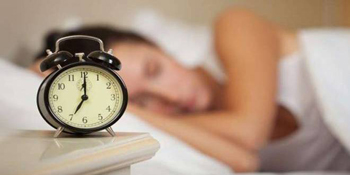While coughing, fever and difficulty in breathing are common symptoms of COVID-19, a new case study has found that pink eye is also a reason to be tested for the disease.
The study, published in the Canadian Journal of Ophthalmology, determined that conjunctivitis and keratoconjunctivitis can also be primary symptoms of COVID-19.
The researchers noted that in March, a 29-year-old woman arrived at the Royal Alexandra Hospital's Eye Institute of Alberta with a severe case of conjunctivitis and minimal respiratory symptoms.
After the patient had undergone several days of treatment with little improvement -- and after it had been determined that the woman had recently returned home from Asia -- a resident ordered a COVID-19 test.
The test came back positive, according to the researchers.
"What is interesting in this case, and perhaps very different to how it had been recognised at that specific time, was that the main presentation of the illness was not a respiratory symptom. It was the eye," said Carlos Solarte, an assistant professor at the University of Alberta in Canada.
"There was no fever and no cough, so we weren't led to suspect COVID-19 at the beginning. We didn't know it could present primarily with the eye and not with the lungs," Solarte said.
Academic studies at the outset of the pandemic identified conjunctivitis as a secondary symptoms in about 10 to 15 per cent of COVID-19 cases, he said.
Since then, scientists have gained greater knowledge of how the virus can transmit through and affect the body's mucous membrane system, of which the conjunctiva -- the clear, thin membrane that covers the front surface of the eye -- is an extension.
While the finding provides important new health information for the public, it also makes eye exams more complicated for ophthalmologists and staff, the researchers noted.
"The patient in this case eventually recovered well without any issues. But several of the residents and staff who were in close contact with the patient had to be under quarantine," said Solarte.
"Fortunately, none who were involved in her care also tested positive," he said.
Patients coming into an eye clinic with conjunctivitis and keratoconjunctivitis are now treated as potential cases of COVID-19 and extra precautions are taken by staff, according to the researchers.
 The study has further warned that people who are associated with jobs like medical services, fire and emergency and are forced to work 24-hour shifts with little opportunity to sleep are at a higher risk.
The study has further warned that people who are associated with jobs like medical services, fire and emergency and are forced to work 24-hour shifts with little opportunity to sleep are at a higher risk.




Comments
Add new comment